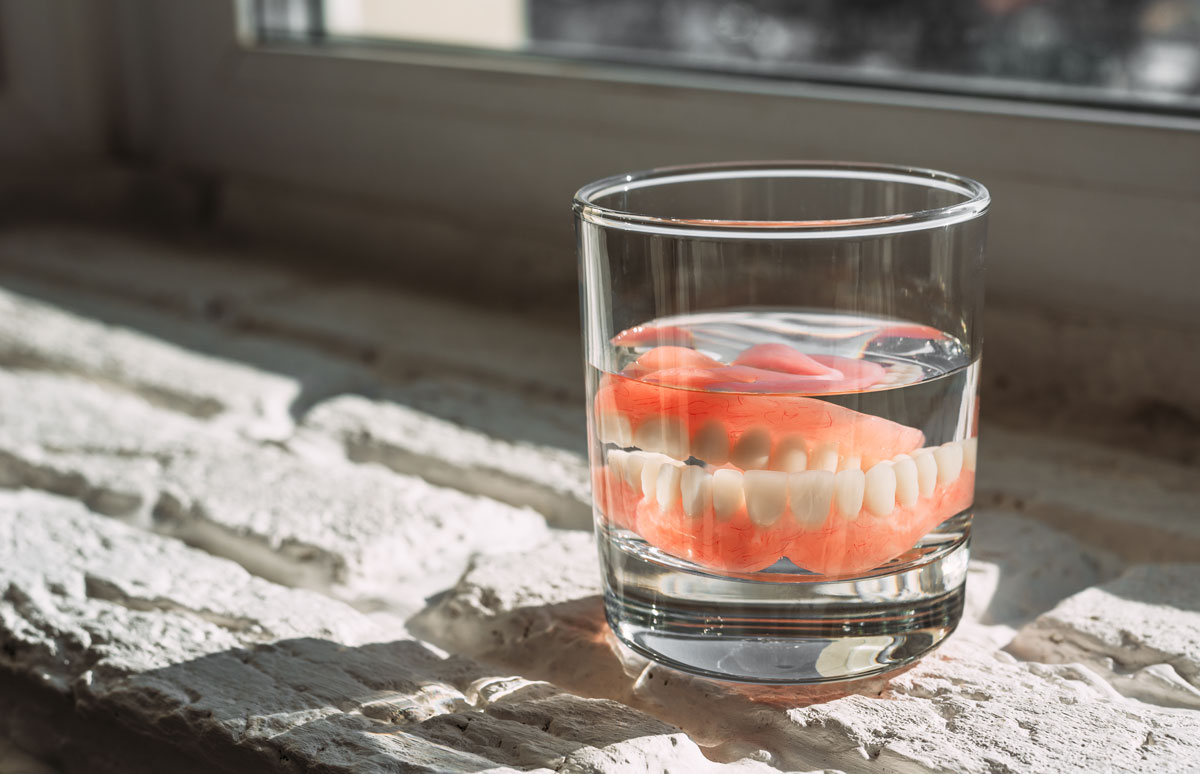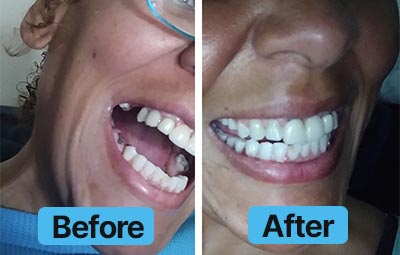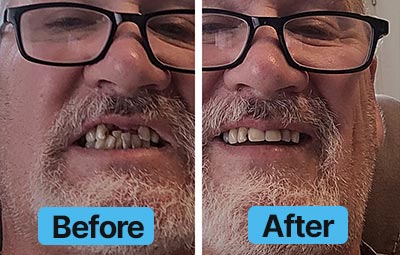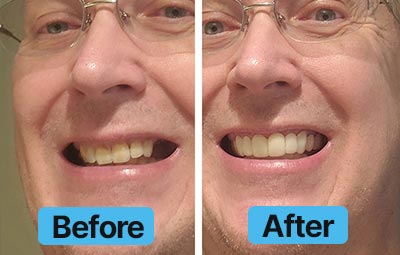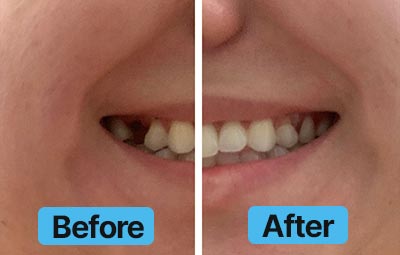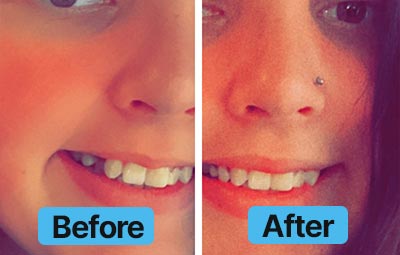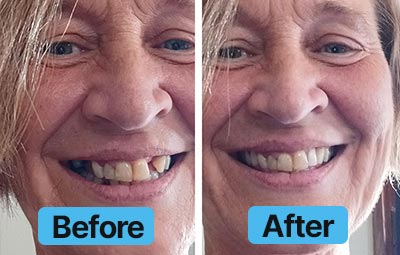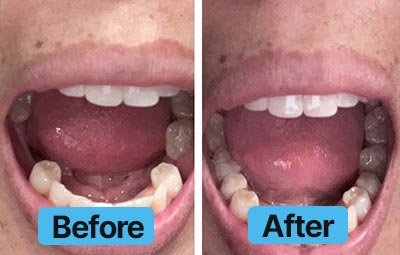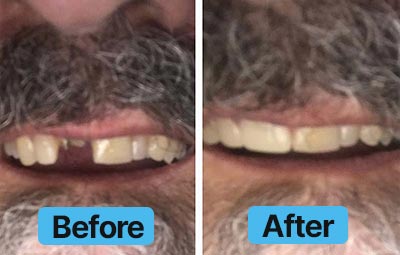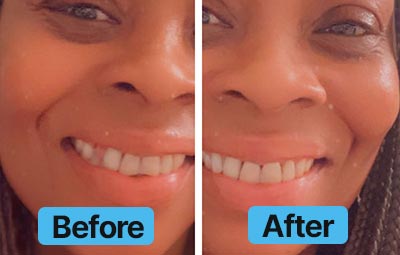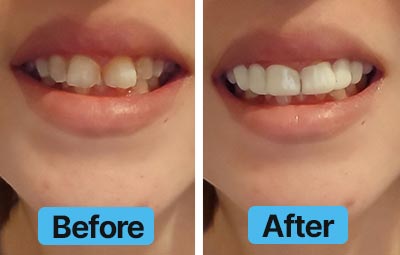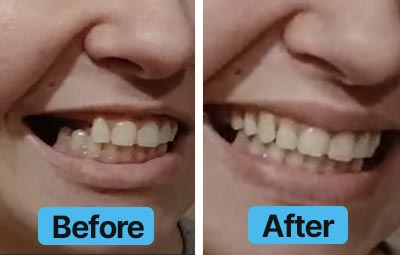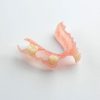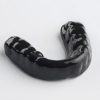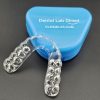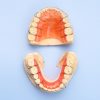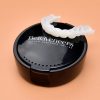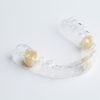If you wear dentures, you may have heard of denture stomatitis, a common condition also known as “denture sore mouth” or thrush under dentures. But the good news is that it’s preventable and treatable with proper care.
What is Denture Stomatitis?
Denture stomatitis is an inflammation of the mouth’s soft tissues, usually in the gums or palate, that is associated with wearing dentures.
To call this common would be an understatement. Denture stomatitis affects up to 20-67% of removable denture wearers worldwide. And unfortunately, many denture wearers, especially older adults, may develop this at some point.
What Causes Denture Stomatitis?
The main culprit in denture stomatitis is the yeast Candida albicans when it overgrows.
Denture wearers are prone to this overgrowth for a number of reasons, one of which being poor denture hygiene. Dentures can accumulate a biofilm of plaque, food debris, bacteria, and yeast just like natural teeth do. So, if they’re not removed and cleaned every day, this accumulation of gunk will provide a breeding ground for Candida.
Another reason for this overgrowth is that some people wear their dentures continuously. Those who sleep with their dentures have a much higher risk of stomatitis because constant denture wear creates a warm, moist environment between the denture and the gum where fungi can flourish.
Dentures that do not fit correctly can also cause denture stomatitis. Ill-fitting dentures will rub against your gums and cause minor trauma to the surface. When these areas get irritated, they are more susceptible to infection. Plus, a loose denture also tends to allow more food and plaque to get underneath it.
There are other factors that can predispose someone to denture stomatitis as well, such as:
- A diet high in sugars or carbohydrates
- Smoking and alcohol use
- Dry mouth (xerostomia)
- Systemic conditions like diabetes or immune suppression (or use of steroid inhalers)
- Men develop denture stomatitis twice as often as women
What Are the Signs of Denture Stomatitis?
Denture stomatitis can be sneaky because, in many cases, it doesn’t cause dramatic symptoms. Many people have no pain or obvious discomfort at first.
Believe it or not, but this is sometimes only discovered during a dental exam or when the denture is taken out and the tissue underneath is inspected. If you were to look, the classic sign is a red, inflamed area on the palate (roof of your mouth) or the gums that corresponds to the shape of the denture that sits there. In some cases, you might also see red, pinpoint dots on the palate.
Another sign can be difficulty swallowing or a mild burning sensation in the mouth, though this is less common. Some people might develop angular cheilitis, which are small cracks at the corners of the mouth.
Sometimes a white cottage cheese-like patch might be present (like in regular thrush infections), but in denture stomatitis, this is actually not typical on the gums under the denture. The gums usually just look red. The denture itself may have a whitish film or plaque. If you scrape the inside of the denture and notice a white film that has a yeasty odor, that probably means there’s fungal buildup.
You might also experience bad breath because chronic yeast infections can contribute to halitosis.
How to Prevent Denture Stomatitis
The best way to prevent denture stomatitis is by keeping your dentures clean and giving your gums time to rest. Here’s how to put that into practice:
| Tip | Why It Matters | How to Do It |
| Clean Every Day | Removes plaque, bacteria, and yeast that can cause infections like denture stomatitis. | Brush with a soft denture brush and non-abrasive cleanser. Soak dentures overnight in a denture solution. |
| Remove Dentures at Night | Lets gums rest and saliva naturally clean tissues. | Take dentures out overnight. |
| Good Oral Hygiene | Keeps tissues healthy and prevents fungal buildup. | Brush gums, tongue, and any natural teeth with a soft brush. You can also wipe your gums with a damp cloth if brushing is difficult. |
| Dentures Should Fit | Prevents rubbing, sore spots, and infections. | Get relines or adhesives if your dentures aren’t fitting perfectly. If your dentures are over 5-7 years old, replace them. |
| Diet & Habits | Candida thrives on sugar; smoking, alcohol, and dry mouth increase risk. | Limit sugary snacks/drinks. Manage diabetes if applicable. Avoid smoking. Limit alcohol. Stay hydrated. |
How to Cure Denture Stomatitis
If you do end up with denture stomatitis, don’t worry—it’s usually simple to treat (and here are 5 tips for managing sore spots).
The first step is often to address it with improved hygiene and denture care (as in the prevention steps above). In mild cases, simply not wearing the dentures at night and cleaning them thoroughly can lead to improvement in a couple of weeks.
For direct treatment of the infection, use an antifungal medication. The most frequently prescribed are topical antifungals like Nystatin or Miconazole, which you use for 1-2 weeks. Your dentist might also recommend an antifungal mouth rinse like chlorhexidine or hexetidine, which have antifungal properties to help disinfect the mouth and denture.
If the infection is particularly stubborn or widespread, and topical treatments aren’t enough, an oral antifungal pill such as fluconazole could be prescribed (though this is usually last resort).
In addition to medication, treating the denture itself is necessary. It does little good to medicate your mouth but then put a yeast-infested denture back in, so make sure it’s clean, or get a new set of dentures.
Final Thoughts
Denture stomatitis is an unwelcome but common guest for denture wearers. The formula for keeping it away is: clean your dentures daily, take them out at night, and make sure they’re a good fit.
If your current denture set is uncomfortable or more than 5-7 years old, it may be time for an upgrade.
At Dental Lab Direct, you can order high-quality, custom-made full dentures or partial dentures directly from the lab, saving you both time and money without sacrificing comfort.
Take the first step toward a healthier smile today!
 30 DAY warranty on all custom-made products | 1,000+ 5 Star ★★★★★ Reviews
30 DAY warranty on all custom-made products | 1,000+ 5 Star ★★★★★ Reviews